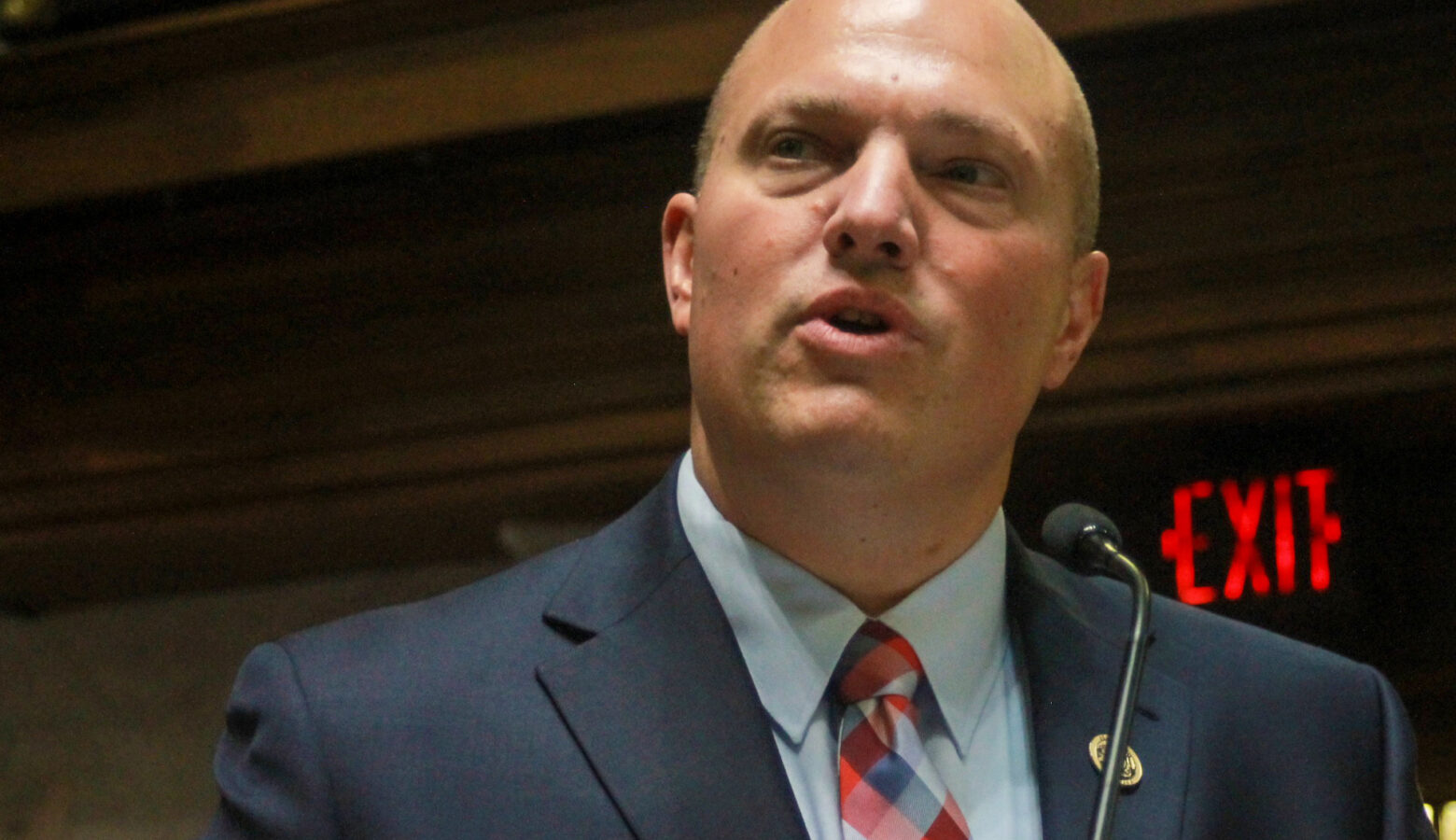Author pushes back against fiscal concerns as Senate passes prior authorization bill

The Indiana Senate approved a stripped down version of a prior authorization reform bill Thursday. The legislation was heavily amended over fiscal concerns. But, the author of the bill said he disagrees with the original fiscal analysis for the bill.
Sen. Tyler Johnson (R-Leo) proposed prior authorization reform last year, but the bill didn’t get a hearing in the Senate Appropriations Committee due to fiscal concerns. Johnson said the fiscal note for last year’s bill said the cost to the state was more than $1 billion.
While Senate Bill 480 made it to the Senate floor this year, the Appropriations Committee removed almost all its policies with a fiscal component.
Johnson said he worked with fiscal experts to bring the cost of the bill down, but the fiscal note didn’t reflect that.
“I still wholeheartedly reject that estimate,” Johnson said. “We have a lot of work to do here. The numbers just don’t add up. Nor do they reflect the new bill that we’ve put forward.”
Johnson said the original fiscal note for the bill said the prior authorization reforms would still cost Indiana $1.2 billion when he and many of the people he worked with expected it to be “pennies on the dollar.”
Indiana ran a pilot program through the state employee health plan to see if limiting prior authorization would increase costs or utilization like many insurance companies have claimed. Johnson said Indiana saw no increase in utilization — and patients and providers didn’t have to jump through as many prior authorization hoops. He said the lack of increase should imply the fiscal concerns are overstated.
Join the conversation and sign up for our weekly text group: the Indiana Two-Way. Your comments and questions help us find the answers you need on statewide issues, including our project Civically, Indiana and our 2025 bill tracker.
Johnson also pushed back on some of the other claims insurance companies made when testifying.
“We also heard that insurance companies know better than physicians when it comes to patient care. That left unchecked, doctors would simply do the wrong thing — that is just absurd,” Johnson said. “Our physicians take an oath to do as best for their patients. I would bet they just do just that. Yet time and again, we see big insurance denying or delaying care in ways that put patients at risk.”
Johnson said the current state of the bill addresses some issues with prior authorization, but he still wants more meaningful reforms for Hoosier patients.
He said he still plans to put a “meaningful cap” on prior authorization for services patients “have already paid for” through their insurance and eliminate prior authorization on low cost drugs.
READ MORE: Prior authorization bill moves forward. But key reforms stripped out over fiscal concerns
Sen. Micheal Crider (R-Greenfield) agreed with Johnson on the need to eliminate prior authorization on necessary medications. Crider said his wife recently had a heart attack, and she had to go back to her doctor because her insurance company didn’t approve the prior authorization for her medication.
“I feel for all the families that don’t have the resources of the time and things to fight through those types of situations,” Crider said.
Johnson’s list of reforms also includes policies for when the insurance company is in the wrong.
“We will demand stronger fraud provisions, so when that care is denied and it’s deemed medically necessary, the insurers are held accountable,” Johnson said.
Several lawmakers joined Johnson in calling for stronger reforms. Johnson said he is not done trying to help patients and providers address prior authorization as a barrier to providing and receiving care.
“The fight is far from over, and together we will ensure that Hoosier patients get the care they need without these unnecessary roadblocks,” Johnson said.
The bill now heads to the House.
Abigail is our health reporter. Contact them at aruhman@wboi.org.

